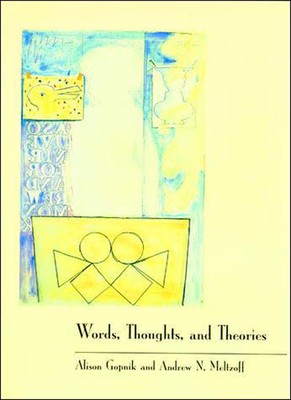
- We will send in 10–14 business days.
- Author: Alison Gopnik
- Publisher: MIT Press
- ISBN-10: 0262571269
- ISBN-13: 9780262571265
- Format: 15.2 x 22.8 x 1.5 cm, softcover
- Language: English
- SAVE -10% with code: EXTRA
Reviews
Description
Words, Thoughts, and Theories articulates and defends the "theory theory" of cognitive and semantic development, the idea that infants and young children, like scientists, learn about the world by forming and revising theories, a view of the origins of knowledge and meaning that has broad implications for cognitive science.Gopnik and Meltzoff interweave philosophical arguments and empirical data from their own and other's research. Both the philosophy and the psychology, the arguments and the data, address the same fundamental epistemological question: How do we come to understand the world around us?
Recently, the theory theory has led to much interesting research. However, this is the first book to look at the theory in extensive detail and to systematically contrast it with other theories. It is also the first to apply the theory to infancy and early childhood, to use the theory to provide a framework for understanding semantic development, and to demonstrate that language acquisition influences theory change in children.The authors show that children just beginning to talk are engaged in profound restructurings of several domains of knowledge. These restructurings are similar to theory changes in science, and they influence children's early semantic development, since children's cognitive concerns shape and motivate their use of very early words. But, in addition, children pay attention to the language they hear around them and this too reshapes their cognition, and causes them to reorganize their theories.
EXTRA 10 % discount with code: EXTRA
The promotion ends in 16d.03:24:29
The discount code is valid when purchasing from 10 €. Discounts do not stack.
- Author: Alison Gopnik
- Publisher: MIT Press
- ISBN-10: 0262571269
- ISBN-13: 9780262571265
- Format: 15.2 x 22.8 x 1.5 cm, softcover
- Language: English English
Gopnik and Meltzoff interweave philosophical arguments and empirical data from their own and other's research. Both the philosophy and the psychology, the arguments and the data, address the same fundamental epistemological question: How do we come to understand the world around us?
Recently, the theory theory has led to much interesting research. However, this is the first book to look at the theory in extensive detail and to systematically contrast it with other theories. It is also the first to apply the theory to infancy and early childhood, to use the theory to provide a framework for understanding semantic development, and to demonstrate that language acquisition influences theory change in children.The authors show that children just beginning to talk are engaged in profound restructurings of several domains of knowledge. These restructurings are similar to theory changes in science, and they influence children's early semantic development, since children's cognitive concerns shape and motivate their use of very early words. But, in addition, children pay attention to the language they hear around them and this too reshapes their cognition, and causes them to reorganize their theories.


Reviews